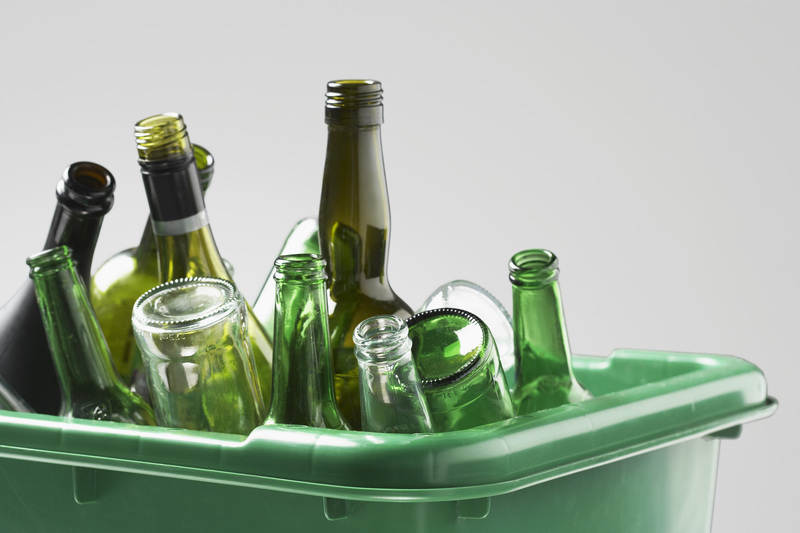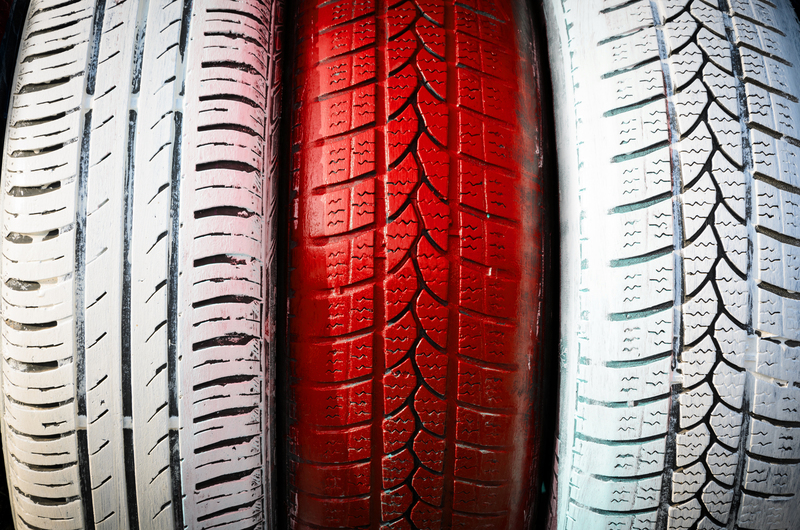From Refuse to Resource: The Growing Role of Recycling in the UK
Posted on 23/09/2025
In recent years, recycling has become an increasingly important topic in the UK. With mounting concerns over the environment and sustainability, more and more people are turning to recycling as a way to reduce waste and conserve resources. From plastic bottles to paper products, the amount of waste that can be recycled is constantly expanding. In this article, we will take a closer look at the growing role of recycling in the UK, why it's important, and what we can do to contribute to a more sustainable future.
Why Recycling Matters
The effects of pollution and climate change are becoming impossible to ignore. As consumers, our choices have a huge impact on the environment and recycling plays a vital role in reducing our carbon footprint. Every time we recycle, we are saving energy and conserving natural resources. In fact, according to Waste & Resources Action Programme (WRAP), recycling just one aluminum can saves enough energy to power a TV for three hours.
Recycling also helps to reduce the amount of waste sent to landfills, which not only takes up valuable land but also releases harmful greenhouse gases into the atmosphere. By diverting waste from landfills, we can decrease our carbon emissions and slow down the rate of climate change.
Furthermore, the circular economy model of recycling promotes a closed-loop system where waste is transformed into new products. This not only reduces the need for extracting raw materials but also creates new job opportunities and boosts economic growth.

The Reality of Recycling in the UK
While there has been significant progress in recycling rates over recent years, there is still room for improvement. The latest data from DEFRA (Department for Environment, Food & Rural Affairs) shows that the UK's household recycling rate was at 45.7% in 2019, which falls short compared to some other European countries such as Germany (67%) and Austria (63%).
One major challenge facing recycling in the UK is contamination. This occurs when non-recyclable items are mixed in with recyclables, making it difficult and sometimes impossible to recycle them. Common contaminants include food waste, plastic bags, and greasy pizza boxes. Contamination leads to increased processing costs and can even result in entire batches being rejected for recycling.
The Future of Recycling in the UK
The good news is that steps are being taken to improve recycling processes and increase participation rates. Local councils are expanding their recycling programs and implementing new technologies such as optical sorting and mechanical biological treatment to improve the efficiency of recycling.
Moreover, advancements in technology have also made it possible to recycle a wider range of materials. For instance, there are now facilities that can recycle disposable coffee cups, which were once considered too difficult to process due to the plastic lining inside.
Individuals can also play a significant role in shaping the future of recycling in the UK by making simple changes in their daily habits. By following the three R's - Reduce, Reuse, and Recycle - we can all contribute towards a more sustainable future.
Pros and Cons of Recycling
There are several advantages to recycling, including reducing pollution and greenhouse gas emissions, conserving resources, and creating new job opportunities. It also helps to preserve natural habitats and protect wildlife by decreasing the need for raw material extraction.
However, there are also some drawbacks associated with recycling. For example, it can be costly to implement and maintain recycling infrastructure. Contamination of recyclables is also a major challenge that increases costs and decreases efficiency. Moreover, not all materials can be recycled or have limited market demand, making it challenging to find sustainable solutions for certain types of waste.
Tips for Effective Recycling
To ensure our efforts toward recycling are effective, here are some tips to keep in mind:
1. Know what can be recycled: Educate yourself on what can and cannot be recycled in your area. Check with your local council or recycling facility for guidelines.
2. Clean and dry recyclables: Make sure items that are going to be recycled are clean and dry to avoid contamination.
3. Avoid plastic bags: Plastic bags cannot be recycled, so opt for reusable bags instead.
4. Don't forget about e-waste: Electronic waste such as phones, laptops, and batteries should not be thrown into regular bins. Find out where you can safely recycle them.
5. Reduce and reuse wherever possible: Recycling is important, but reducing and reusing items before they become waste is even better.

Key Takeaways
Recycling plays a crucial role in creating a sustainable future by reducing pollution and conserving resources. While there is still room for improvement in the UK's recycling rates, efforts are being made to improve processes and increase participation. As individuals, we can also contribute by being mindful of our consumption habits and practicing effective recycling methods.
Conclusion
From refuse to resource, recycling has come a long way in the UK. With a growing awareness of environmental issues and advancements in technology, the future looks promising for recycling in the country. By making small changes in our daily lives, we can all play a part in creating a more sustainable world for generations to come.
Latest Posts
Essential Tips for Managing Organic Waste






